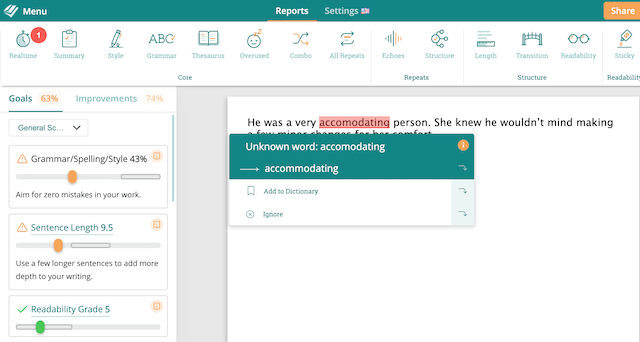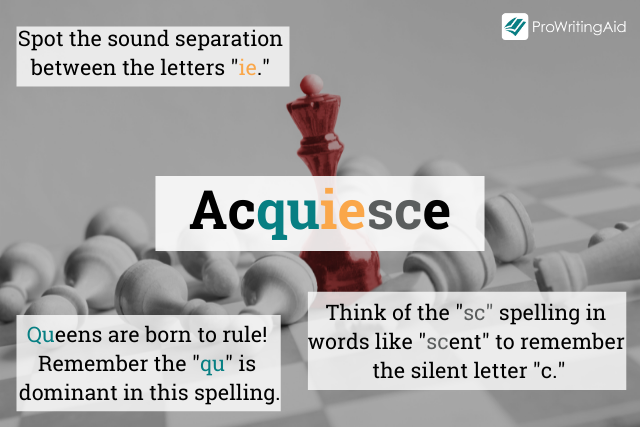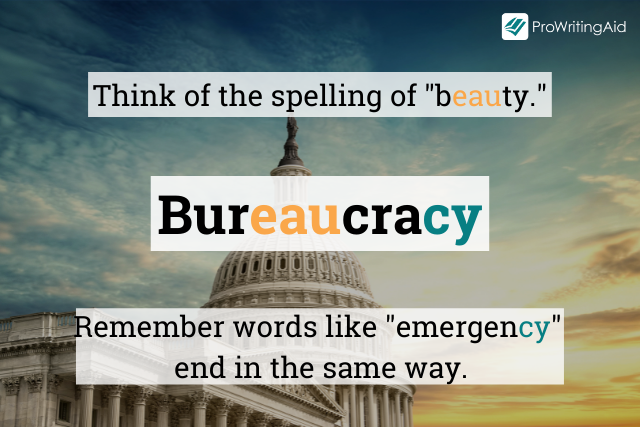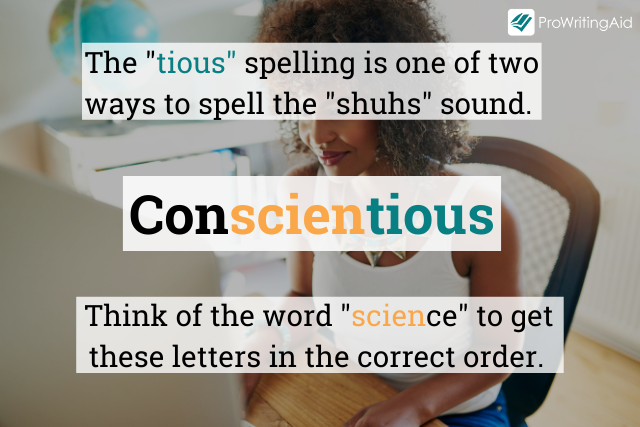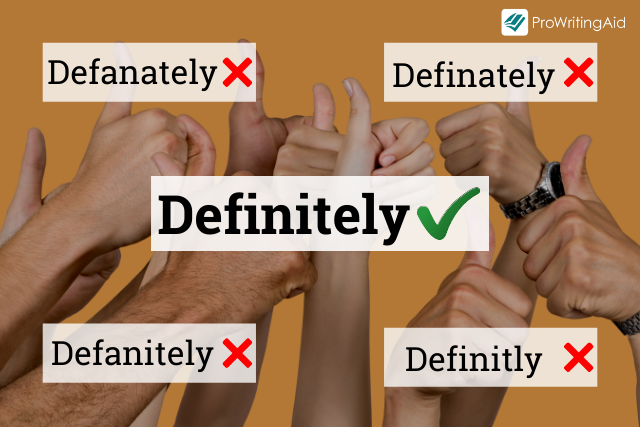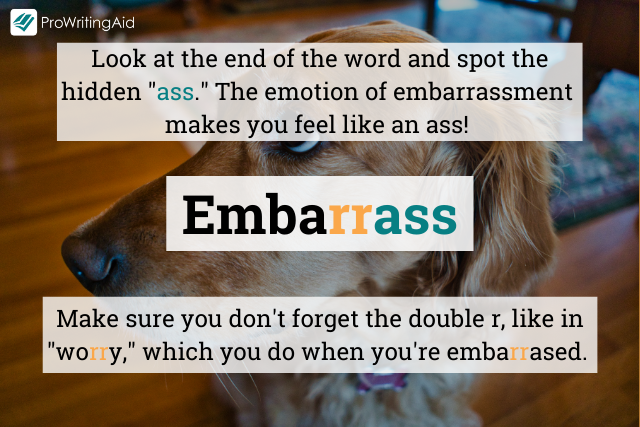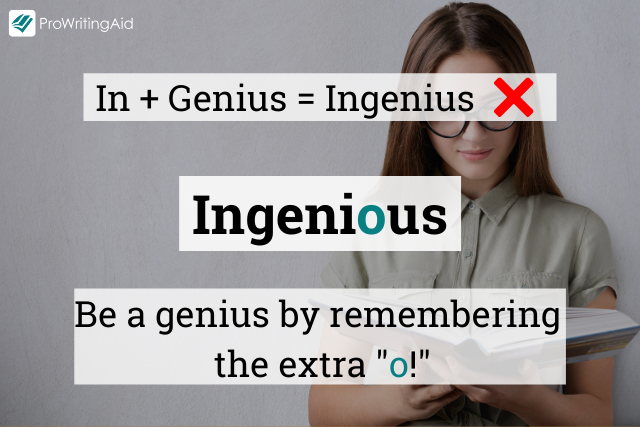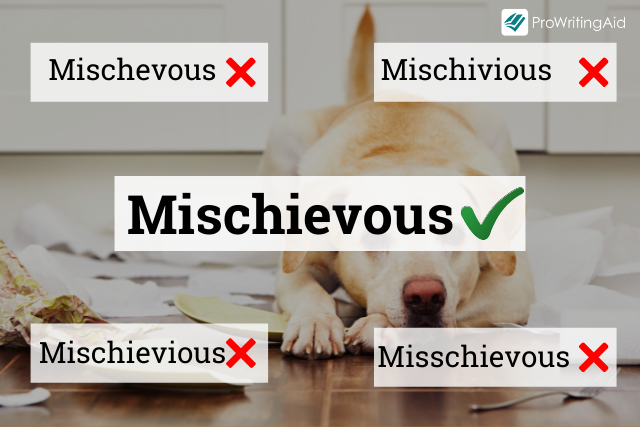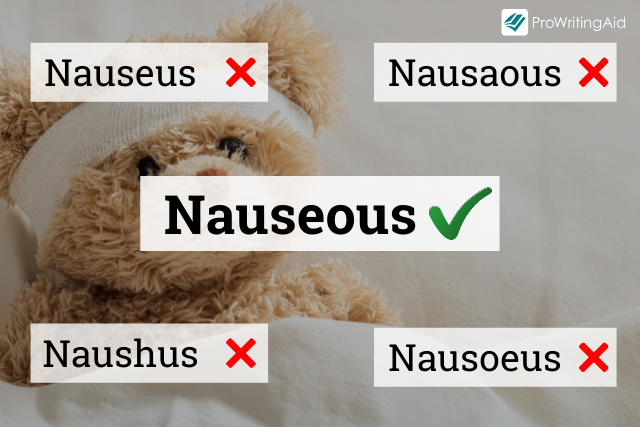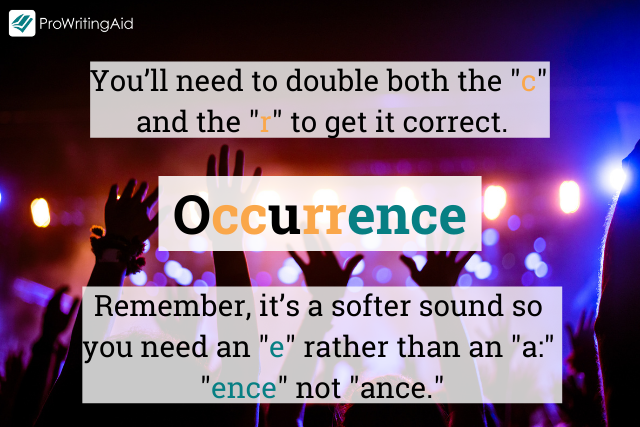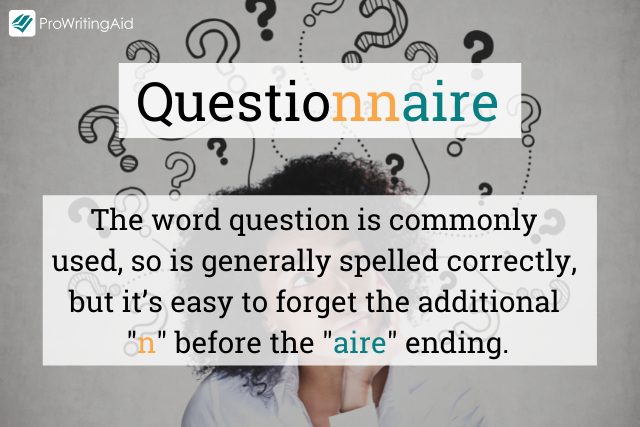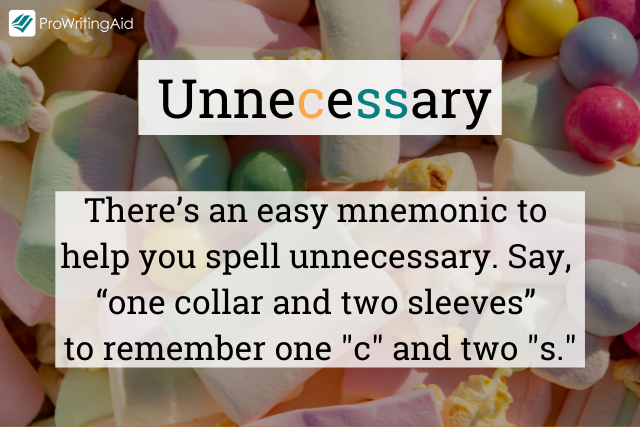
Living in the age of auto-correct and Google search, there is less of an emphasis on spelling as there once was. But its importance can’t be denied.
When writing a resume, a proposal or a school assignment, a misspelled word can be the difference between getting a job and missing out or getting the marks needed to pass an assignment or not.
We don’t recommend trying to use any of the words below in your next important document, they are some of the hardest words to spell in the English language.
10. Misspell
Let the misspelling begin with the misspelled word misspell. While this is number ten in our list of misspelled words, it’s certainly number one in most ironic misspelled words that occur in a spelling bee. Misspelling misspell is like forgetting your phone number, you have seen it all the time and yet when you stop and think about it, it slips your mind.
9. Pharaoh
This misspelled word falls into the error category of ‘you spell it like it sounds’. This term is used to refer to the ruler of ancient Egypt and like an ancient Egyptian ruler, this word will play a tyrant in your mind as it controls your every thought after you have been eliminated for spelling it “pharoh”.
8. Weird
Fear the confusing power of the’ I before E’! This literary rule is viewed as an absolute but there are exceptions. Fitting of the many exceptions to the rule that weird is one of them, as that is what is often thought of the word weird when it is misspelled.
7. Intelligence
The word that can be a shot to the ego when misspelled, intelligence being misspelled often creates the most reflection of intellectual state than any other. Its definition of being a measurement of one’s mental ability tends to relate to the fact that you struggled to use your intelligence to spell intelligence.

100+ Spelling Bee Words That Can Make Every Student Feel Like a Spelling Champion
Read it here
6. Pronunciation
A term related to the thing that brings the marriage of words and spelling, pronunciation is the act in which a word is spoken. This is a trap in a spelling bee (both the word itself and its meaning) as the manner in which a word is spoken can be misleading compared to how the word is written out. That’s why the nifty trick of using your finger in the air to write out the word is often used.
5. Handkerchief
Whether used as a decorative pocket accessory or as a tissue you don’t throw out, the handkerchief is useful as a versatile fashion statement and a spelling bee hurdle. Wipe away the emotional highs and lows of spelling competition in style with this handy tool of cleanliness.
4. logorrhea
Do you have a chatter monster in your class? Next time they participate in a spelling bee, try to slip this word into their spelling bee to see if their babble is up to par. logorrhea is a term used when an individual is excessive and incoherent in talkativeness and wordiness.
3. Chiaroscurist
A term used to describe an artist who specialises in chiaroscuro (pictorial representation of light and dark and its effect on composition). Much like the term itself, contrast the dark and the light by shedding some light on someone’s literary ability with a word that is so difficult to spell it’s dark.
2. Pochemuchka
A Russian term used when a person asks too many questions. One can’t help but think that maybe if I were more pochemuchka, I would have been informed on how to spell this word.
1. Gobbledegook
Gobbledegook is incoherent babbling in a fashion that makes no sense amounting to random words and noises to your listeners. Gobbledegook is a word that in fact sounds like complete gobbledegook, but in actuality is a word that has deep meaning for anyone who has ever heard an infant speak or watched a TV show in another language.

There are so many words with spellings that just don’t appear to make sense in the English language. Many students have many worries when writing an essay or paper with so many hard words to spell. Although we live in an age where autocorrect is the new fad, the importance of spelling correctly can not be denied. It is always hard to spell words that do not appear the way they sound.
To aid school graders, college students, and adults alike, we have some of the hardest words to spell. This list of hard words to spell spans across words that are hard to spell for all categories of students and adults. Are you ready to go through our list of very hard words to spell? Here’s our list of top 100 hardest words to spell. Let’s explore!
Hardest Words To Spell Ever
The English language could be a real pest, even for native speakers. Sometimes, the spelling of some words seems to slip out of our heads the very times we need them, while sometimes, we just don’t know how to spell some words and make funny typos.
There are many hard English words to spell. A word may be difficult to spell for many reasons. It could be because it is from a language very different from the English language, e.g., Afrikaans, Sanskrit, etc., or because the pronunciation is very different from the spelling. A word can also be difficult if it has a silent letter or more or a peculiar double letter. Here’s a list of some super hard word to spell!
- Abacaxi
- Abgesang
- Aitch
- Autochthonous
- Chiaroscurist
- Coelacanth
- Kierkegaardian
Long Hard Words To Spell
- Antidisestablishmentarianism
- Floccinaucinihilipilification
- Pneumonoultramicroscopicsilicovolcanokoniosis
- Pseudopseudohypoparathyroidism
- Psychoneuroendocrinological
- Hepaticocholangiogastrostomy
- Spectrophotofluorometrically
Easy Words That Are Hard To Spell
Surprisingly, some of the easiest words to spell in the English language often get misspelled. The words are usually so common and have been used so commonly that it’s unbelievable to know that many can’t spell it correctly – including you! So here’s a list of common words that are hard to spell.
- Misspell
- Pharaoh
- Weird
- Intelligence
- Pronunciation
- Handkerchief
- Logorrhea
Hard Words To Spell For 6th Graders
If you are looking for a nice spelling challenge for a 6th grader, you’re in the right place. Take a look at these hardest English words to spell for 6th graders.
- Noticeable
- Vacuum
- Recommend
- Chaos
- Accommodation
- Accidentally
- Strengthen
- Pneumonia
- Acknowledgment
- Occasion
- Descendant
- Liaison
Hard Words To Spell For 7th Graders
Looking for a 7th grade selling challenge, here are some really hard words to spell for 7th graders.
- Association
- Atmosphere
- Bicycle
- Corollary
- Confetti
- Defalcation
- Bizarre
- Braggadocio
- Echelon
- Gelatinous
- Panache
- Xylem
Hard Words To Spell For 8th Graders
- Condescend
- Discernible
- Concede
- Assuage
- Contemptuous
- Imprudent
- Conscience
- Bazaar
- Ferocious
- Pistachio
- Eloquent
- Lucrative
Hard Words To Spell For 9th Graders
- Stretch
- Substantial
- Superintendent
- Pageant
- Pamphlet
- Parachute
- Nuisance
- Omitted
- Tyranny
- Unanimous
- Vengeance
- Villain
Hard Words To Spell For 12th Graders
- Absolution
- Acerbic
- Adumbrate
- Dearth
- Encumber
- Expunge
- Insidious
- Penurious
- Resplendent
- Saccharine
- Scurrilous
Hard Words To Spell For College Students
- Arctic
- Australia
- Caribbean
- Euclidean
- Presbyterian
- Teutonic
- Abysmal
- Boulevard
- Bouillon
- Bourgeois
Hard Words To Spell For Adults
- Acquiesce
- Andragogy
- Criterion
- Holistic
- Incongruous
- Juxtaposition
- Malapropism
- Obfuscate
- Onomatopoeia
- Soliloquy
There are many spelling rules in the English language that often, it’s difficult to remember which applies. Learning how to spell hard words is a bane to students and adults alike. But don’t fret, we have some proven techniques that will make you conquer most words and spell them with ease.
It may be considered rather unfortunate that the old-fashioned rote memorization method remains the best way to learn how to spell the hardest words. However, memorization techniques have gotten better, making the learning process much more bearable.
There are several mnemonic training techniques and methods used by champion spellers worldwide, such as kinetic learning. This learning technique is the association of mental concepts with a series of movements which make learning much fun and retentive than mere repetition. So here are some tips for learning how to spell hard words!
- Trace the Letters
With one hand, track the letters on your palm as you pronounce them. This method is an easy way to apply kinetic learning. You use three learning pathways that reinforce the words in the memory. These are:
- The motion of your mouth and lips
- The movement of the fingers of one hand moving
- The feeling of the motion on the other palm
For a more active learning experience, you can engage the larger body. Also, movement makes more blood flow to the brain, making it more active and receptive.
- Vocalize the Letters
Another useful tool is to vocalize the letters of the words as you learn them. Repetition words by vocalization give those words a melodic feel, imprinting them more firmly on your mind, just like nursery rhymes. If used appropriately, this leaning method will help you recall words when other methods fail.
- Design Short Study Sessions
Short study sessions are usually more effective for long-term memorization. When you take breaks, the brain can refresh itself and get ready to take a new set of words without becoming overwhelmed.
- Use Repetitive Drills
It usually takes more than one repetition to get spelling correct consistently. Repeat the words you want to learn many times until it sinks into your mind and becomes melodic.
- Group The Words
This is another effective strategy for learning how to spell hard words. Grouping words imply that you put words that follow the same spelling pattern in a group. For example, words with “-ei-“combinations will follow the same pattern. Learning all similar words at the same time will help you build association and reinforce spellings. This method will help you to categorize words, which makes memorization much more manageable.
- Read, Read, Read
One of the best methods to learn how to spell words is to increase your reading. By merely reading and consuming a wide variety of books like wildfire, you’ll become a spelling champion without knowing it. Reading simply makes all the above rules much less confusing. You’ll also be able to build your intuition level and know just when a spelling looks wrong.
- Have Fun
Learning becomes easier if you can apply fun to it. Take the words you want to memorize and see how you can weave fun into it!
So here we are! 100 hard words to spell and how to learn to spell hard words. Wishing you luck in your spelling bee and life in general! If you need homework help, just contact our English assignment helpers.
As any participant in a spelling bee can tell you, correctly spelling words in the English language is not always easy. In most languages, the way words are spelled (graphemes) consistently relate to the way they sound (phonemes). But the English language uses a mix of spellings and pronunciations from Latin, Greek, French, German, and many others. To further confuse matters, words in English have different spellings in different countries. No wonder English is practically the only language spelling competitions are held in!
If you struggle spelling some of these challenging words, just know you are not alone. They are some of the trickiest words to spell in English.
1. necessary
One of the things that makes English hard to spell is that there are letters that can—but don’t always—make the same sounds, such as c and s. This, combined with the use of double consonants that don’t change how the word is pronounced, makes necessary tricky to spell. How do you remember where and how many c or s letters you need? Well, take a look at the word. Do you “c” two s‘s? Ask yourself this to make sure there is first one c and then a double s in necessary.
2. narcissistic
Similar to necessary, narcissistic is challenging to spell because of the c and s letters that make the same sound. It can also be hard to remember where to place the double s. It might help you to know that the word narcissistic ultimately comes from the Greek nárkissos, a plant name associated with narcotics.
3. occasion
The word occasion also features the letters c and s, but here they are not making the same s sound. Part of what makes spelling this word challenging are the hard c (like a k) sounds, spelled with a double c. This double c comes from the Latin origin of the word, the equivalent of the prefix oc- combined with the verb cāsus, meaning roughly “to have befallen.” Also, you may be tempted to add another s, but there is only one in occasion.
⚡️What makes English a difficult language to spell?
Why exactly does English have so many different rules and variations when it comes to spelling? Learn a thing or two about its messy history here.
4. accommodate
The word accommodate also uses a double c … and throws in a double m for good measure. But what makes spelling this word tricky isn’t the consonants, but rather the vowels. The word accommodate [ uh–kom–uh-deyt ] sounds as if it could be spelled with three o‘s, or maybe there is a u in there? But no, there are no u‘s and the first letter is an a, of all things.
5. vacuum
Speaking of words with double c, one word you might expect to have such a spelling but does not is vacuum. Instead of a double c, vacuum features the rare double u (continuum and muumuu are others with this strange combination). The word comes from the Latin vacuus, meaning “empty.”
6. accessory
The word accessory breaks the pattern we have seen so far (remember what we said about the rules of English spelling being inconsistent?). Unlike accommodate, where the double c makes a single k sound, in accessory, the first c makes a k sound, and the second c makes an s sound. Throw in a double s, and accessory is a real challenge to spell correctly.
7. broccoli
Broccoli also features a double c to make a k sound. Besides this complication, you may be tempted to spell the ending with a y or ee to make the lee sound. However, broccoli is a word that comes from Italian, where the ee sound is represented with the letter i.
8. zucchini
Similar to broccoli, zucchini is a word from Italian that uses an i at the end to make an ee sound and has a double c that makes a k sound. If this spelling trips you up too much, you could try the British English word for zucchini instead, which comes from French: courgette [ koor-zhet ].
9. spaghetti
Another word with Italian origins that is a challenge to spell is spaghetti. The letter i at the end of a word in Italian indicates that it is plural. (Technically, a single spaghetti is a spaghetto.) The nearly-silent h might also throw you off when spelling this word.
Bite into more funny tidbits about words with uncommon singular forms here.
10. embarrass
Another word we aren’t embarrassed to admit can be hard to spell is, well, embarrass. One thing that might trip you up is the ending—it sounds like uhs, but is spelled, well, ass. Another thing that makes spelling embarrass difficult is the double r and double s. What explains both of these tricky elements is that embarrass was adopted into English from the Portuguese embaraçar via the French verb embarrasser.
11. bourbon
Speaking of words that come from French throwing us curveballs, another tricky one is bourbon. In English, we use an anglicized pronunciation of this word: [ bur-buhn ], but we have kept the French spelling. The difference between these two is what makes spelling this word hard—just try to remember there are two o‘s, not just one.
12. charcuterie
The French have a very different system of spelling, which can make it confusing when we adopt their words into English. One example of this is charcuterie. In French, the letters char are pronounced shahr. That’s why this fancy word for “cooked, processed, or cured cold meats” (like sausage and pâté) is spelled with a ch instead of the sh you might expect.
13. entrepreneur
Yet another word whose French spelling makes it a challenge for English speakers is entrepreneur [ ahn-truh-pruh–nur ]. Because it starts with an ah sound, you may think it includes an a, but that’s not the case. Next time you write this word, remind yourself that most of the vowel sounds are e‘s, except for the eu at the very end for the oor sound.
14. liaison
The word liaison also has French origins. You may be tempted to spell it phonetically: lee-ay-zon. However, much like the i at the end of Italian words, the i in French can make an ee sound. That might help you remember that liaison has two i‘s.
15. Connecticut
Of course, French and Italian are not the only foreign languages whose words have been adopted into English. Many place names in the United States come from the Indigenous languages of those areas, and these spellings can be difficult. One example is Connecticut, which is pronounced [ kuh–net-i-kuht ], but is spelled “Connect I Cut.” The word comes from the Mohegan-Pequot language and means “upon the long river.”
16. Massachusetts
Another example of this is Massachusetts, named for the tribe of Algonquin people who lived there, whose name means “at the large hill.” This word is particularly challenging to spell because you may be tempted to double the second s … especially because there is a double t at the end.
Did you know Massachusetts is a commonwealth? Learn the difference between commonwealth and state here.
17. epitome
Words that come originally from Greek are also challenging to spell. One example is epitome [ ih-pit–uh-mee ]. The word sounds like it ends in a y or ee, but it doesn’t. One reason for this is because, similar to Italian, all of the vowels from Greek words are pronounced—no silent e here.
18. asthma
Speaking of silent letters, English has a remarkable number of them we use when spelling. There is no way to know these letters ought to be there unless you are familiar with the word. One example of this is asthma, which has a silent th. That’s right, English sometimes will throw in a silent th, just to keep you on your toes.
19. indict
Another word with a deceptive silent letter is indict [ in-dahyt ]. You don’t pronounce the letter c in this word, so you may forget to include it when spelling. The c is a holdover from its late Latin origins, indictāre, related to the English verb dictate.
20. gnaw
We have seen silent th and silent c, but we would be remiss not to mention the silent g that pops up from time-to-time in English. One example of a word with a silent g is gnaw [ naw ].
21. phlegm
Silent g‘s do not only appear at the beginning of words; they can show up in endings as well. One example of this is phlegm [ flem ]. This word is also tricky because it uses the letters ph to make a ff sound. This way of writing the ff sound can be found in words from Greek, such as phlegm and phone.
22. paradigm
Another example of a word from Greek with a silent g is paradigm, from the Greek parádeigma. Based on the way this word is pronounced, you would expect the ending to be spelled dime, not digm.
23. pneumonia
Another silent letter you may come across sometimes is a silent p, as in pneumonia [ noo–mohn-yuh ]. Even if you remember that silent p, the word pneumonia is still tricky because of the oo sound, spelled with an eu.
24. island
The letter s is also occasionally silent in English. One word you have likely come across that uses a silent s is island. The s was added to the word via isle, a word ultimately derived from Latin and meaning “a small island.”
25. rhythm
The word rhythm is particularly challenging to spell. It has two h‘s, but one is silent and the other is used in the diphthong th. It also sounds as if it should have a u [ rith–uhm ], but it doesn’t. Rhythm comes from the Greek rhythmós, a clue that might help you remember its spelling in English.
26. Wednesday
The word Wednesday [ wenz-dey ] is particularly challenging to spell because the d is silent. Wednesday comes from the Old English for “Woden’s day”; Woden is what the pagan Anglo-Saxons called the Norse god Odin. Keeping Woden—or Odin—in mind is a good way to remember that pesky d.
27. eight
The word eight is a homophone of the past participle of “to eat,” ate. That’s not the only thing confusing about this old word. The ending is spelled ight which we associate with words like bright and tight. Here, however, this combination of letters is pronounced [ eyt ] instead.
English is full of homophones galore! Read about some of familiar pairs here.
28. acquiesce
Another word that contains some confusing letter combinations related to how it is pronounced is acquiesce [ ak-wee-es ], a verb meaning “to assent tacitly; agree.” The word comes from the Latin acquiēscere, meaning “to find rest in.” One thing to keep in mind when spelling this word is that ac- is a prefix meaning “toward” or “to.” That means the word breaks down as ac-qui-esce, which may help you spell it correctly.
29. nauseous
The word nauseous [ naw-shuhs ] appears to have just way too many vowels. Like the tricky acquiesce, nauseous comes from Latin. Nauseous means you suffer from nausea, a word that looks practically nautical (nau and sea). If you take the a off of nausea and add the common adjectival ending -ous, you have the correct spelling of nauseous.
30. conscious
A word with the same ending as nauseous that is also tricky to spell is conscious [ kon-shuhs ]. It may help you to spell it if you remember that it comes from the Latin conscius, meaning “sharing knowledge with,” equivalent to con-(with) + sci- (know) + -us (-ous, indicating an adjective).
31. grateful
One of the biggest challenges when it comes to spelling words in English are the number of homophones, or words that sound the same but are spelled differently. That’s why you may be tempted to spell the word grateful with an ea, as in great. However, grateful comes from the obsolete grate, meaning “pleasing,” not the word great, as in “large.”
32. separate
The word separate is tricky because the second vowel sound is spelled with an a and not a u or e, even though in many accents it sounds as if it should be.
33. lightning
Finally, there are some words in English that seem as if they should have more letters than they do. One example of this is lightning [ lahyt-ning ]. The unusual combination of tn may throw you off here. However, adding an e would make the word lightening, which has another meaning altogether.
If you ever get stuck on one of these words, or any others, you can always look up how to spell them here. Do your best to sound it out, and our algorithm will suggest the words you might be looking for. You can also use this handy word list to test yourself on these words. Whether you struggle to spell these words or others, keep in mind that the English language is a real challenge to spell!
Whether you’re a learner or a native speaker, you’re probably well aware that the rules of English spelling sometimes make very little sense. If you’re not a natural-born speller, this can be grounds for a massive headache. Just when you think you’ve gotten the hang of how one sound is spelled, a rhyming word pops up with an entirely different spelling—take “meat” and “greet” for example—and your world comes crumbling down. Below, we’ll take you through ten of the hardest English words to spell, discussing what they mean, why they’re so challenging and how you can use them in a sentence.
- Nauseous
- Dilate
- Fuchsia
- Minuscule
- Ingenious
- Sacrilegious
- Orangutan
- Paraphernalia
- Epitome
- Slough
Ready to start learning with Lingoda?
1. Nauseous
What it means: Having the feeling that you’re going to vomit
Why it’s hard: Starting off our list of most difficult words to spell is “nauseous.” Despite looking like it might be pronounced “NAW-see-us,” this word is actually pronounced “NAW-shus.” Everyday words that contain a “sh” sound in the middle more commonly use a “ti” as in “cautious” (“CAW-shus”—which rhymes with “nauseous”) or “nation” (“NAY-shun”), so this “eous” business might trip you up. Why can’t it be “nautious”?
How to use it: “I can’t go on sailboats. The swaying up and down always makes me feel nauseous.”
2. Dilate
What it means: To become or make something wider or larger
Why it’s hard: For some reason, many English speakers pronounce this as a three-syllable word, “DI-a-late”—but that’s not it. Don’t be tempted to add that extra “a” in there!
How to use it: “Your pupils dilate to let in more light so you can see when it’s dark.”
3. Fuchsia
What it means: A vibrant red-purple color
Why it’s hard: The spelling of this word, which is pronounced “FEW-sha,” makes no sense—it looks like it says “FEWCH-sia” or “FUCH-see-uh.” Why isn’t it just “fucia”?
How to use it: “You’ll see me. I’ll be standing outside the coffee shop wearing a bright fuchsia dress.”
4. Minuscule
What it means: Very small
Why it’s hard: You might associate this word with “mini,” derived from “miniature,” another word that refers to something tiny. So it would be understandable if you wanted to spell this one “miniscule.” But that’s not the case! Make sure you spell this one with a “u.”
How to use it: “Even if you can only save a minuscule amount of money every day, it can add up in the long run.”
5. Ingenious
What it means: Extremely clever; a very smart idea
Why it’s hard: Why does “ingenious” contain an “o” when “genius” doesn’t? This may surprise you, but the two words don’t share the same roots! Their meanings may seem similar, but “ingenious” doesn’t actually describe a genius-level idea. Once you can get your head around that, you’ll have an easier time remembering the spelling of this word.
How to use it: “Using two pancakes in place of sandwich bread? Ingenious!”
6. Sacrilegious
What it means: Disrespectful toward something holy or sacred—this word is sometimes used humorously
Why it’s hard: Because it’s connected to the idea of anti-holiness, many people hear the word “religious” in this one; therefore, they want to spell it “sacreligious.” However, this word actually comes from the noun “sacrilege,” and has no “religious” roots.
How to use it: “You’re Canadian and you don’t like maple syrup? That’s sacrilegious!”
7. Orangutan
What it means: A large ape with brownish-red hair
Why it’s hard: Is this a typo? Why wouldn’t there be a “g” at the end of this word? Well, contrary to popular belief, this animal is not called an “orangutang.” We’re not sure exactly where that pronunciation came from, but it’s quite widespread—and so is the misspelling of the word.
How to use it: “Did you know that orangutans spend almost their whole lives in trees?”
8. Paraphernalia
What it means: Particular objects needed for a certain activity
Why it’s hard: If you don’t think this one belongs on our list of the hardest words to spell in the English language, maybe you’re spelling it wrong! Many people mistakenly pronounce this word “para-fa-NEEL-ia” leaving the second “r” silent and changing the second-last “a” (a long “a” sound) to a long “e” instead. As a result, you might be tempted to write “paraphenelia.”
How to use it: “The trunk of my car is such a mess—all of my workout paraphernalia is in there.”
9. Epitome
What it means: The best example of something; a perfect representation
Why it’s hard: If you’ve only ever heard this word before and have never seen it written, you may have thought it was spelled “epitomy”—after all, it ends with a long “e” sound, so using a “y” seems like the logical choice. But, just like the word anemone, that final sound is represented by the letter “e.” This is far less common than using a “y,” and is, therefore, a little confusing.
How to use it: “My ex-boyfriend is the epitome of selfishness.”
10. Slough
What it means: 1. To shed something (e.g., skin) 2. A wet, swampy area
Why it’s hard: We chose this word to end our list because, no matter what the definition, the spelling could be so much more straightforward than it is. If you’re referring to the first definition, the act of shedding, “slough” is pronounced “sluff.” The swampy definition, however, is commonly pronounced “slew” in American English, but also sometimes rhymes with “wow.” Who decided that two words that are pronounced completely differently should share this unintuitive spelling?
English spelling: The epitome of confusion
If this list of the hardest English words to spell has your head spinning, you’re not alone; lots of others feel the same way. We suggest having some fun by memorizing these words, challenging your friends to a spell-off and impressing everyone with your skills!
Ready to start learning with Lingoda?
Andrea is a Canadian freelance writer and editor specializing in English, e-learning, EdTech, and SaaS. She has a background as an ESL teacher in beautiful Vancouver, British Columbia. In her free time, Andrea loves hanging out with her husband and children, creating recipes in the kitchen, and reading fiction. She also loves camping and jumping into lakes whenever possible. Learn more about Andrea on LinkedIn or check out her website.
Start your 7-day free trial
In English, there are many hard words to spell, but some are more difficult than most. We’ve collected 14 of the most commonly misspelled words you need to learn.
Even native English speakers can struggle with the variations of the English language. That’s why ProWritingAid is such a useful tool for catching the spelling and grammatical errors that can create a poor impression. ProWritingAid can spot differences between American and British spelling rules, find commonly confused words, and help you learn more about the English language.
These 14 words are fiendishly tricky. Using them correctly is a great way to level-up your writing abilities.
Word 1: Accommodate
How Do I Pronounce It?
-
British English: uh·ko·muh·dayt
-
American English: uh·kaa·muh·dayt
What Does It Mean?
- 1: To fit in with the needs or preferences of someone.
- 2: Provide sufficient space for a specific amount of people (typically buildings).
What Type of Word Is It?
- Verb
Example in a Sentence
- The wide doorways accommodate those with limited mobility.
- The holiday home accommodates four people.
How Can I Remember the Spelling?
Accommodate is hard to spell because it can be tricky to remember which letters you need to double. It’s common to see it misspelled as «acommodate,» «accomodate,» and «acomodate».
An easy way to remember that both the «c» and «m» need to be doubled is to think about the meaning of the word. «Accommodate» means making room, so you need to make space for those double letters!
Other Variations of This Word:
- Accommodating: She was very accommodating.
- Accommodated: Students may be accommodated in the halls of residence.
- Accommodation: The accommodation was disappointing.
Word 2: Acquiesce
How Do I Pronounce It?
- British and American English: a·kwee·es
What Does It Mean?
- To accept something without protest but reluctantly.
What Type of Word Is It?
- Verb
Example in a Sentence
- She had to acquiesce to the demands of the business.
How Can I Remember the Spelling?
Acquiesce is a truly challenging word, for native English speakers as well as those learning it as an additional language. The first letter «c» isn’t pronounced, which makes it hard to remember. Then there’s the letter «i» making an «ee» sound. Finally the end «ce» isn’t pronounced at all.
So how can you remember it?
- Queens are born to rule! Remember the «qu» is dominant in this spelling.
- Spot the sound separation between the letters «ie». They are not making the same vowel sound.
- Think of the «sc» spelling in words like «scent» to remember the silent letter «c».
Other Variations of This Word:
- Acquiesced: She finally acquiesced to the request.
- Acquiescing: She would not be acquiescing, no matter what they offered.
- Acquiescent: He was acquiescent.
Word 3: Bureaucracy
How Do I Pronounce It?
- British English: byuor·ro·kruh·see
- US English: byoo·raa·kruh·see
What Does It Mean?
- 1: A system of government in which most important decisions are taken by state officials.
- 2: Excessively complicated administrative procedure (often called «red tape»).
What Type Of Word Is It?
- Noun
Example in a Sentence
- The bureaucracy is divided into departments.
- All this bureaucracy stops us from making decisions.
How Can I Remember the Spelling?
This is a hard word to spell and would have many native English writers reaching for their dictionary.
Splitting the word into two parts can help. The first section «bureau» means an office or department. Look at the «eau» sounds. This is unusual, but it’s also found in the word «beauty.»
At the end of the word, the «cy» is making a «see» sound. That’s commonly used in English; think of words like «emergency,» «frequency,» and «democracy» that all end in the same way.
Other Variations of This Word:
- Bureau: I work for the Citizens Advice Bureau.
- Bureaucratic: This system is too bureaucratic.
- Bureaucrat: We’re fed up with bureaucrats making decisions.
Word 4: Conscientious
How Do I Pronounce It?
- British English: kon·shee·en·shuhs
- American English: kaan·shee·en·shuhs
What Does It Mean?
- 1: Someone who works thoroughly and well.
- 2: Relating to someone’s conscience (moral sense of right and wrong).
What Type Of Word Is It?
- Adjective
Example in a Sentence
- He was a conscientious worker.
- Conscientious objectors refuse to perform military service.
How Can I Remember the Spelling?
This word is difficult to spell because of the combination of vowels used both in the middle and end of the word.
Look at the «scien» part and think about the spelling of the word «science,» but remember they are pronounced differently. The «tious» spelling is one of two ways to spell the «shuhs» sound (the alternative is «cious» as used in «delicious»).
Other Variations of This Word:
- Conscience: The decision weighed on her conscience.
- Conscientiously: The painter was known for working conscientiously.
Word 5: Definitely
How Do I Pronounce It?
- British and American English: deh·fuh·nuht·lee
What Does It Mean?
- Without doubt.
What Type of Word Is It?
- Adverb
Example in a Sentence
- We are definitely going out tonight.
How Can I Remember the Spelling?
This word looks simple enough, but it’s deceptive because the vowels don’t match the pronunciation of the word. You’ll often spot people adding «a» instead of «i» in error.
It’s helpful to look at a word hidden within this one: «finite». The word «finite» means a specific, measurable amount.
Other Variations of This Word:
- Definite: We had definite plans for the weekend.
- Define: The gate defines the park boundary.
- Definitive: We have come to a definitive decision.
Word 6: Embarrass
How Do I Pronounce It?
- British English: ihm·ba·ruhs
- American English: uhm·beh·ruhs
What Does It Mean?
- Make someone feel self-conscious or ashamed.
What Type of Word Is It?
- Verb
Example in a Sentence
- He wanted to embarrass her.
How Can I Remember the Spelling?
Another deceptively simple word, «embarrass» is often misspelled because the vowels sound closer to an «ee» than an «ay.» Add to that the confusion of which letters need to be doubled.
Look at the end of the word and spot the hidden «ass.» The emotion of embarrassment makes you feel like an ass! It definitely helps you remember the spelling too.
Other Variations of This Word:
- Embarrassment: The embarrassment was too much to bear.
- Embarrassing: It was an embarrassing situation.
- Embarrassed: He felt so embarrassed by his mistake.
Word 7: Entrepreneur
How Do I Pronounce It?
- British English: on·truh·pruh·nuh
- US English: aan·truh·pruh·noor
What Does It Mean?
- A person who sets up a business.
What Type of Word Is It?
- Noun
Example in a Sentence
- She was a keen entrepreneur.
How Can I Remember the Spelling?
We often think of the word «entrepreneur» as being a French word, but looking back further into its etymology can help us remember the spelling.
The word «entrepreneur» means «to swim out» and «to capture.» What a great way to describe someone starting out in a new business.
Other Variations of This Word:
- Entrepreneurial: She showed entrepreneurial instincts.
- Entrepreneurship: The booming economy encourages entrepreneurship.
Word 8: Ingenious
How Do I Pronounce It?
- British and American English: ihn·jee·nee·uhs
What Does It Mean?
- 1: A clever or inventive person.
- 2: A clever machine or idea well suited to its purpose.
What Type of Word Is It?
- Adjective
Example in a Sentence
- What an ingenious man he is!
- The machine was ingenious, yet simple.
How Can I Remember the Spelling?
Most people go wrong with the spelling of «ingenious» when they wrongly assume it’s the word «genius» with an «in» at the start. Don’t get tricked out! Remember there’s an «o» there, like in the words, «curious» and «anxious.»
Other Variations of This Word:
- Ingenuity: It will take ingenuity to get the design right.
Word 9: Manoeuvre
How Do I Pronounce It?
- British and American English: muh·noo·vuh
What Does It Mean?
- 1: A movement or series of moves requiring skill and care.
- 2: Large-scale military exercises.
- 3: To move skilfully or carefully.
- 4: To carefully manipulate a person or situation to achieve a desired goal.
What Type of Word Is It?
- Noun
- Verb
Example in a Sentence
- The manoeuvre was challenging.
- The artillery were on manoeuvre.
- She could manoeuvre the box around the corner.
- It was easy to manoeuvre him in the meeting.
How Can I Remember the Spelling?
The French origins of this word make it hard to spell accurately. The middle of the word contains a tricky «oeu» you’ll need to learn. Don’t forget the final «vre» needs you to flip the common «er» ending more often used in American English.
Other Variations of This Word:
- Manoeuvrable: The ship was manoeuvrable despite its size.
Word 10: Mischievous
How Do I Pronounce It?
- British and American English: mis·chuh·vuhs
What Does It Mean?
- Causing or enjoying causing trouble in a playful way.
What Type of Word Is It?
- Adjective
Example in a Sentence
- She was a mischievous child.
How Can I Remember the Spelling?
We can’t blame you for getting this spelling wrong. Originally (up until around 1700 CE) it was also spelled «mischievious» and pronounced slightly differently. You’ll still hear people wrongly saying «mis-CHEE-vee-ous.»
Try remembering the word «chief» to spell the center of this word.
Other Variations of This Word:
- Mischief: He was the source of all mischief.
Word 11: Nauseous
How Do I Pronounce It?
- British English: naw·zee·uhs
- US English: naa·shuhs
What Does It Mean?
- Feeling (or causing one to feel) sick and/ or needing to vomit.
What Type of Word Is It?
- Adjective
Example in a Sentence
- The smell made her feel nauseous.
How Can I Remember the Spelling?
If you speak with a British accent, you’ll find this word much easier to spell as it’s closer to the pronunciation. When you’re writing it, try over-pronouncing the word «naw-SEE-ous» to help you remember the «se» in the middle of the word.
Other Variations of This Word:
- Nausea: A wave of nausea swept over him.
- Nauseated: She felt nauseated just looking at him.
Word 12: Occurrence
How Do I Pronounce It?
- British and American English: uh·kuh·ruhns
What Does It Mean?
- An incident or event.
What Type of Word Is It?
- Noun
Example in a Sentence
- Climate change makes extreme weather a common occurrence.
How Can I Remember the Spelling?
Most people struggle to remember whether they need a «ence» or «ance» ending for this word. Remember it’s a softer sound so you need an «e» rather than an «a.»
You might also trip up over which letters need to be doubled. You’ll need to double both the «c» and the «r» to get it correct.
Other Variations of This Word:
- Occurring: The meeting will be occurring weekly.
Word 13: Questionnaire
How Do I Pronounce It?
- British and American English: kwes·chuh·nehr
What Does It Mean?
- A written set of questions with a choice of answers used for gathering data.
What Type of Word Is It?
- Noun
Example in a Sentence
- They used the questionnaire to collect a range of views.
How Can I Remember the Spelling?
The word question is commonly used, so is generally spelled correctly, but it’s easy to forget the additional «n» before the «aire» ending.
Other Variations of This Word:
- Questionnaires: We wrote several questionnaires.
Word 14: Unnecessary
How Do I Pronounce It?
- British and American English: uhn·neh·suh·seh·ree
What Does It Mean?
- Not needed or excessive.
What Type of Word Is It?
- Adjective
Example in a Sentence
- It was an unnecessary expense.
How Can I Remember the Spelling?
Many people get confused about which letters need to be doubled when you spell «unnecessary,» but there’s an easy mnemonic to help. Say, «one collar and two sleeves» to remember one «c» and two «s.»
Other Variations of This Word:
- Unnecessaries: His income was too limited for many unnecessaries.
Resources for Improving Your Spelling
English is a difficult language to spell because it’s been influenced by so many other languages. You might feel there are more «exceptions to the rule» than words that follow a particular spelling pattern.
These resources are all great ways to improve your English writing skills:
- Vocabulary.com: Learn words using a wide range of question types and systematic practise.
- English Forward: Explore videos and activities for people learning English as an additional language.
- The Spelling Blog: Johanna Stirling’s fascinating blog explores how English works, how to learn it, and how to love it!
Whatever your spelling ability, remember accurate spelling creates a positive impression of your overall competence. It’s worth every effort to make certain it’s correct. And if you’re not sure, ProWritingAid’s comprehensive checker will do the heavy-lifting for you to ensure you always get it right.
Try ProWritingAid’s Editor for Yourself



